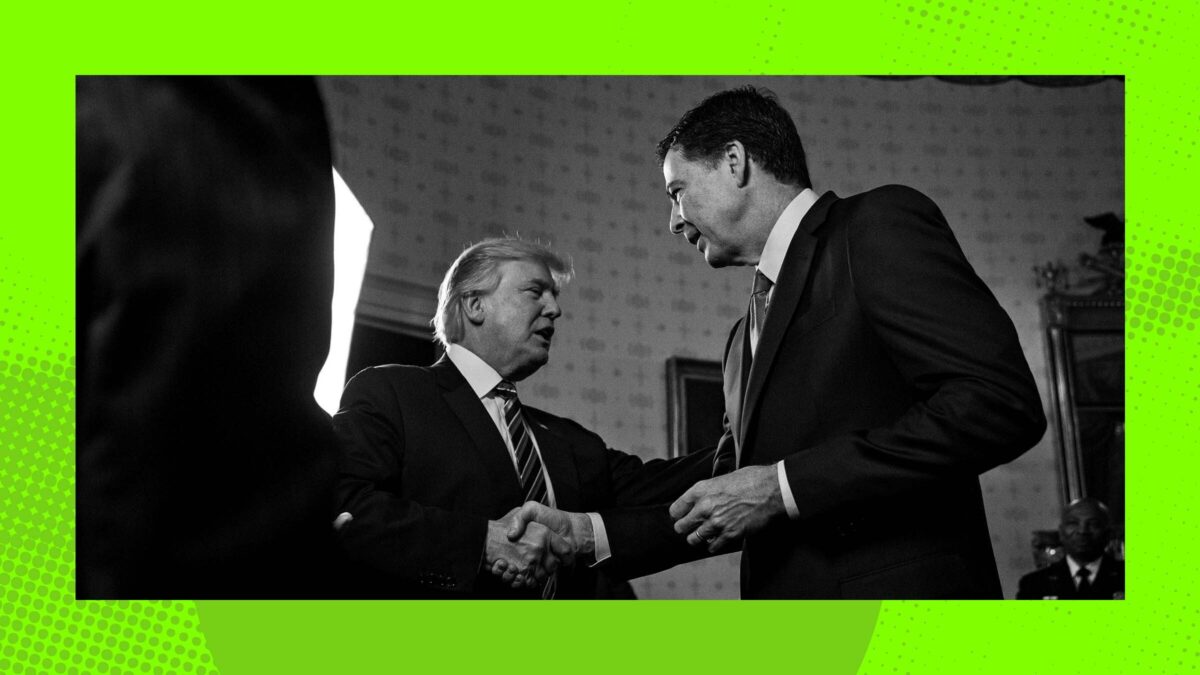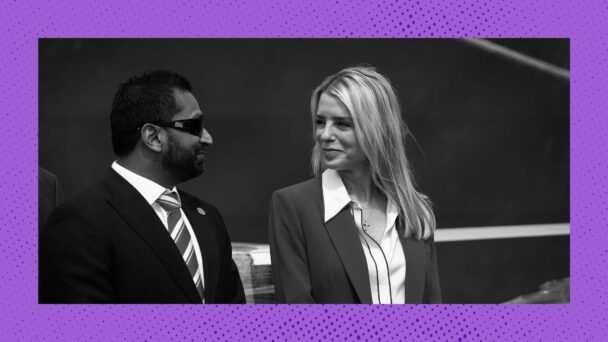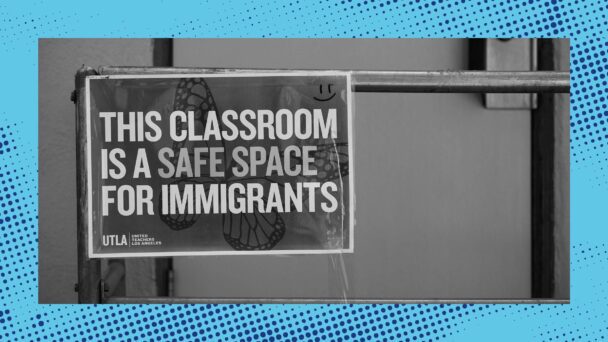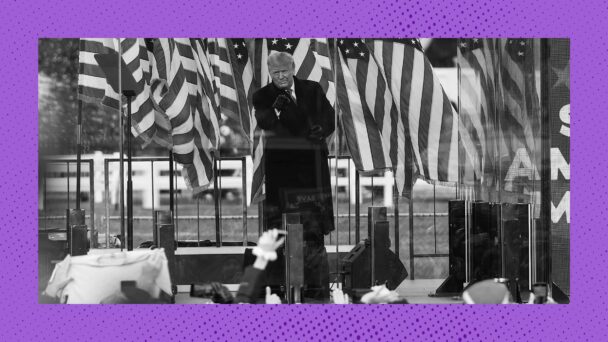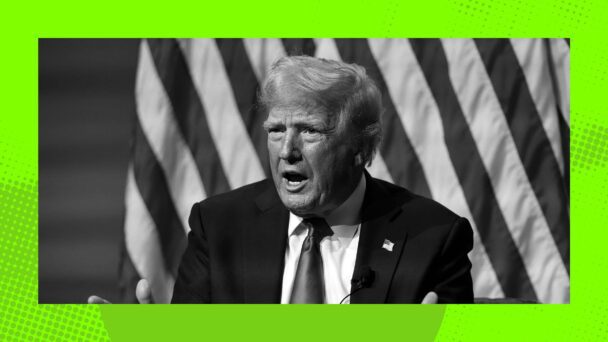On Wednesday, MSNBC reported that the Department of Justice is nearly ready to act on one of the president’s decade-old grievances by bringing criminal charges against James Comey, the former director of the Federal Bureau of Investigation. This news comes two days after Lindsey Halligan, a former White House aide and personal lawyer for Donald Trump, replaced Erik Siebert as the Acting U.S. Attorney for the Eastern District of Virginia. Siebert, a career prosecutor, resigned under pressure from Trump, in large part because Siebert determined that there wasn’t enough evidence to justify charging Comey with anything.
Halligan, who has no prosecutorial experience, is reportedly undeterred by this detail. According to the Associated Press, she plans to ask a grand jury to indict him on something anyway, as soon as today.
The precise charges are still unknown. On Wednesday, MSNBC’s sources indicated that “at least one element of the indictment” would likely accuse Comey of lying when he testified before Congress five years ago about whether he authorized a leak of information related to the Russia election interference investigation, as Trump claimed in 2017 that Comey did. (The statute of limitations for making a false statement to Congress expires in five days, a fact that would explain Halligan’s haste.) On Thursday, Florida Republican Representative Greg Steube, a member of the House Judiciary’s ironically-named Subcommittee on the Weaponization of Government, said he thinks Comey “should be charged with treason.”
Neither of these are Comey’s actual offense, which is upsetting Donald Trump. Trump has wanted to punish Comey for his perceived grievances for years, and believes he can now do so without any meaningful consequences. The looming indictment underscores the threat that Trump’s expansive claims to power over all of government pose to democracy itself. Congress and the Supreme Court haven’t constrained him yet, and he sees little reason to constrain himself—not even from turning the whole government against a single individual.
Comey began to incur Trump’s wrath by overseeing the FBI’s investigations of both Trump and Hillary Clinton around the time of the 2016 presidential election. In Trump’s telling, Comey was a “Clinton loyalist” hell-bent on smearing Trump despite his innocence, and protecting Clinton despite her guilt. Trump eventually fired Comey in May 2017, claiming that DOJ leadership recommended that he do so in response to Comey “usurping” their authority by announcing, a year earlier, that the Clinton investigation should be closed without prosecution. Days later, Comey revealed that Trump had asked him to drop the FBI’s investigation into former national security advisor Michael Flynn, related to alleged collusion with the Russian government to interfere in the 2016 election.
Quashing the investigation and relieving Comey of his job duties was not enough for Trump, who spent much of his first term in office trying to get someone—anyone—in government to prosecute Comey. In September 2017, for instance, one of Trump’s attorneys emailed Deputy Attorney General Rod Rosenstein asking why the Department of Justice had “failed to open and commence a full Federal Grand Jury investigation” into Comey, and requesting that it do so. In the spring of 2018, Trump told his White House counsel that he wanted to order the DOJ to prosecute Comey (and Clinton). And in 2019, Trump pressured Attorney General Bill Barr to prosecute Comey. Barr later said that Trump was “very, very upset” at him for not doing so. But that didn’t make a difference—every time Trump tried to step across this particular line, everyone around him said no.
That is no longer the case. On Saturday, Trump made a public appeal to Attorney General Pam Bondi to prosecute Comey and other officials whom he considers enemies. “There is a GREAT CASE, and many lawyers, and legal pundits, say so,” he posted on Truth Social. “They impeached me twice, and indicted me (5 times!), OVER NOTHING. JUSTICE MUST BE SERVED, NOW!!!” Where term one had private requests and rejections, term two has an open campaign of retribution.
A defining aspect of Trump’s second stint in office is the fusing of the three branches of federal government into just one, whose sole purpose is to serve Trump’s interests. Often, this has far-reaching and devastating effects. When he bypassed the courts to kick people he claimed were Venezuelan gang members out of the country without due process, for instance, they were tortured in a Salvadoran prison; and when he unilaterally overrode congressional appropriations for international aid relief, people died. But Trump is, at bottom, a small and petty man. So some of his interests are small and petty as well.
